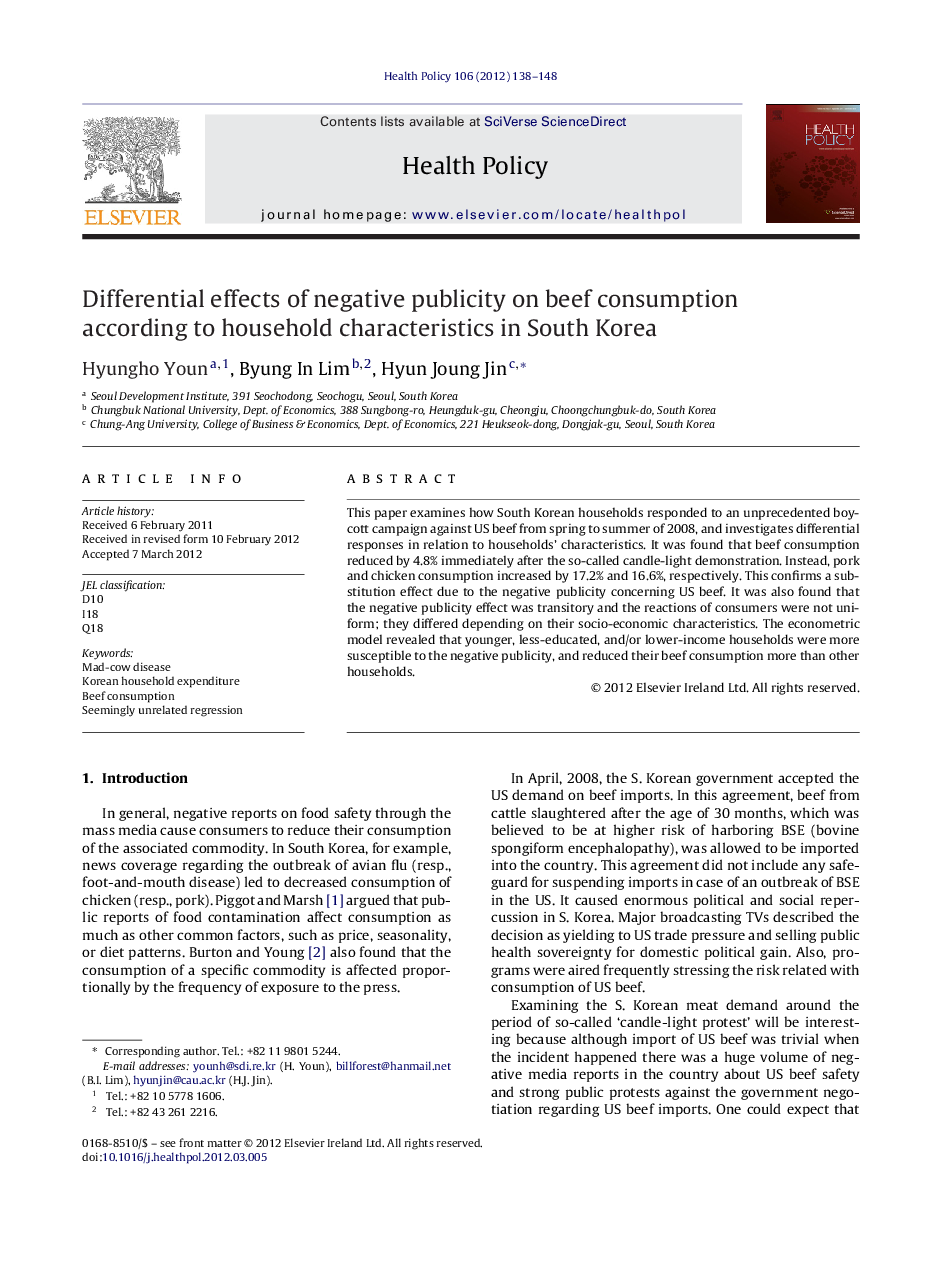| Article ID | Journal | Published Year | Pages | File Type |
|---|---|---|---|---|
| 4198034 | Health Policy | 2012 | 11 Pages |
This paper examines how South Korean households responded to an unprecedented boycott campaign against US beef from spring to summer of 2008, and investigates differential responses in relation to households’ characteristics. It was found that beef consumption reduced by 4.8% immediately after the so-called candle-light demonstration. Instead, pork and chicken consumption increased by 17.2% and 16.6%, respectively. This confirms a substitution effect due to the negative publicity concerning US beef. It was also found that the negative publicity effect was transitory and the reactions of consumers were not uniform; they differed depending on their socio-economic characteristics. The econometric model revealed that younger, less-educated, and/or lower-income households were more susceptible to the negative publicity, and reduced their beef consumption more than other households.
